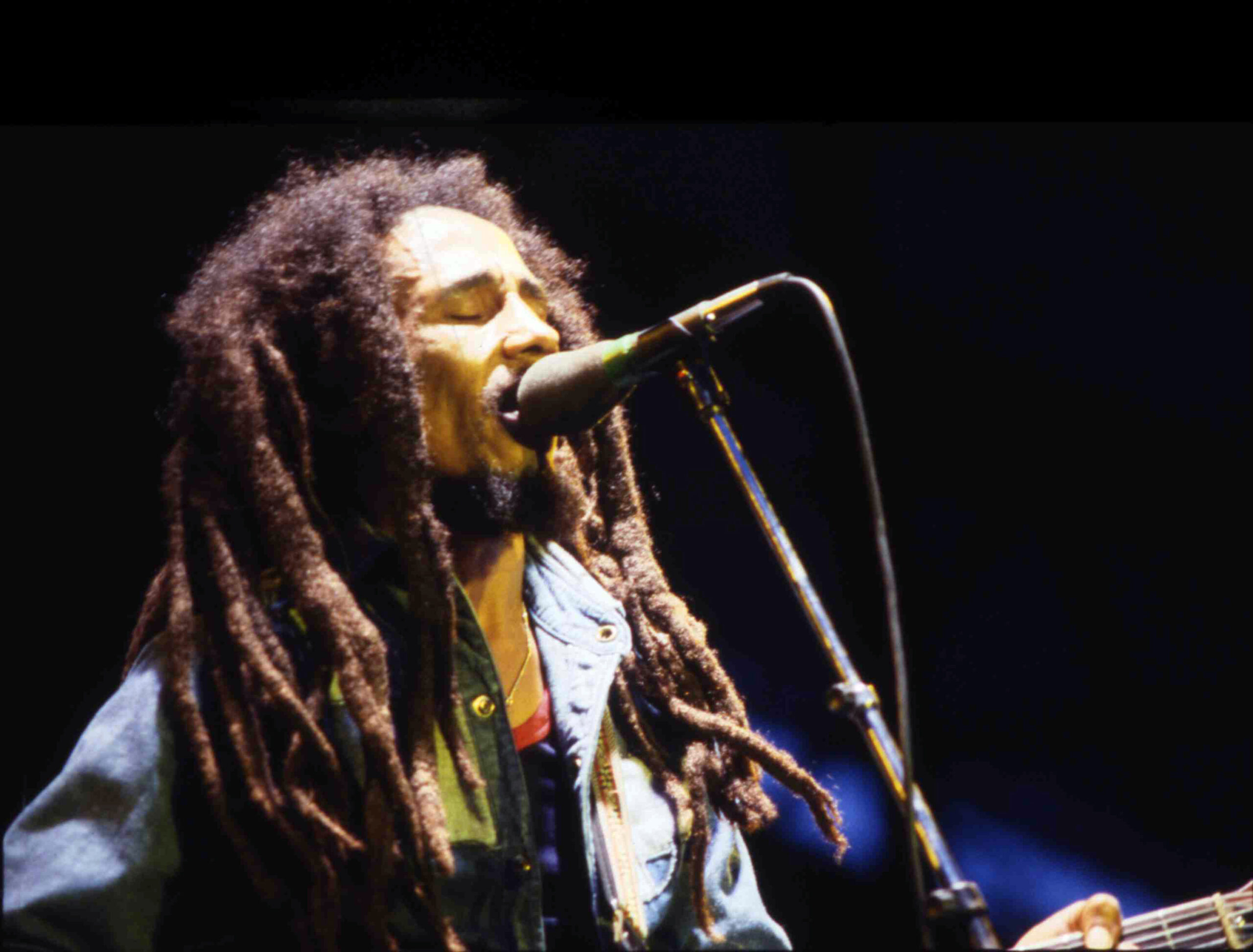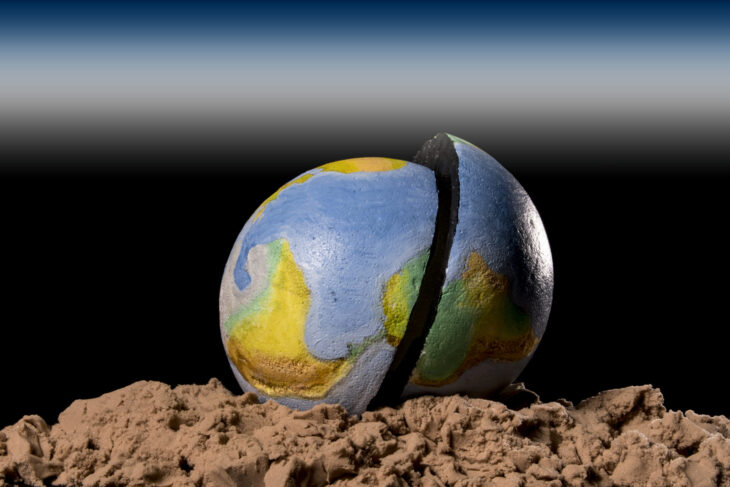
Everybody in the world has an opinion about something or the other. But every opinion is as a nail, a common hardware item, which, without an external force applied to the top of it, like that of a hammer driving it into a piece of wood or through a sheet of metal, would be just like every other nail resting idly on a pile of nails. Again, it matters not the type of nail, nor its quality — a nail outside the context of usage in construction, in repairs, or in refurbishing means absolutely nothing.
What is true of nails is just as true of your opinion and of mine, and so is every opinion in respect to whether the late Robert Nesta Marley, or any other Jamaican for that matter, should be elevated to the rank of National Hero or not. It seems that there is no unanimity on this matter, one way or another. And, outside of opinion polls — with their plus and minus margins for error — would it be enough to answer this question with a national referendum? As a matter of fact, were the seven awardees now on our list of heroes decided on via that method?
With no disrespect intended to the late great Reggae icon, I could think of several individuals who have done great service in various fields of endeavour, and who have made tremendous sacrifices for this country. I am even tempted to mention the name of an iconic Jamaican personality, asserting that there is no way that one could nominate Mr. Marley to attain that rank without the person that I have in mind, one who preceded his contributions to our culture. The person I have in mind might not have filled stadiums, or she might not have had people in one African nation, for example, breaking down fences to see and to hear her, but a part of the pride that Mr. Marley exuded, without a shadow of a doubt, was due to the labour of love for our people and our culture by the individual in question. But, I will not mention the name of that person, because my nail is just like every other nail on the heap. And, although they all have value, they mean nothing without a hammer.
And so, what am I getting at with my foolish analogies? What are my concerns? It is all about the reason or the purpose behind the desires to see anyone so elevated, and also the methodology which is used towards such a determination. What is the process? The conversation about Mr. Marley and about that of others has been on going for quite sometime. And so, whether with votes of “Yay” towards approval with respect to his contributions to national life, or “Nay” — what then is the hold up? Why, what appears to me, all this dithering on the part of the Jamaican government?
As to the purpose — do we really need another National Hero? If that is the case, then does the seeming reticence on the part of the Jamaican government on this matter due to racism or to classism? Is someone of Mr. Marley’s ilk being overlooked because of those issues? Is the call for his elevation to that rank due, in whole or in part, therefore, to satisfying a need of people of a certain demographic make-up to see someone who resembled and who sounded like them representing them in that regard? If that is the case, would not such concerns have already been met and reflected in the likes of Mr. Marcus Garvey, Mr. Paul Bogle, Ms. Nanny of The Maroons and Mr. Sam Sharpe?
Again, because Mr. Marley has put Jamaica on the map, as has been asserted so often in recent times, would that be reason enough for such a promotion? With the exception of Mr. Garvey, who gained global recognition, that was never the case with any of the other National Heroes, not as we have come to know and experience the afterglow of fame which we now enjoy through Mr. Marley. And so, would “putting Jamaica on the map” be an indispensable criterion? And, if our cadre of heroes is not enough then when would the list be enough? I have observed, with some degree of embarrassment, how crowded the spaces on our Jamaican currency have become with the faces of past Prime Ministers. For anyone who attains the rank of Prime Minister in the future will that be reason enough to squeeze him or her somewhere on to a note or a coin? Will our list of National Heroes become as crowded as our national currency?
Would Mr. Marley, were he alive today, have cared about such things as titles, especially from a system that he and others of his religion have often described as “Babylon”? Would not such an award or recognition pose a crises of principles or of conscience? Let us suppose that a Jew, who survived Hitler’s concentration camps, was bestowed the highest Nazi recognition, or Mr. Mandela from the Apartheid South African government — would such approbation be appropriate?
All that having been said, what do we have in place or ought to have in place as a safeguard against the slippery slant and the terrible taint of subjectivity? Is our process of selection objective and satisfactory? This, I believe, is not idle chatter, given for example, the uproar in some quarters of society over a national award that was given to a Reggae artist who was honoured recently. Should he not have been bestowed with that honour, and, if not, then why not? I did not, at the time, take issue with their right to having an opinion on the matter, but to launch personal attacks against the Reggae artist in question was not only misguided, but juvenile and inappropriate. In fact, his constrained and gracious response to his naysayers gave him a platform which only proved his quality. It would have been understandable if they had
directed their rage at the powers that be and posed their questions about the process to them. They only attacked the wood into which the nail was driven, without having given any serious attention to the hammer!
Does everybody love and truly revere the memory of Mr. Marley, despite the Hollywood production about his life that is currently in theaters and the numerous documentaries done on his life? I think not. (Someone tried to have him assassinated, was that not so?) Did all love Mr. Marcus Garvey, or Sir Alexander Bustamante, or Mr. Norman Manley? I think not. I just read an article on-line, for example, which attacked “Busta”, painting him in the most unfavorable light, in a caricature consistent with one who is viewed as a neerdowell or thug. And yet, somehow, against a boisterous sea of critics, “Busta” and his cousin and fellow patriot, Norman, were honoured as National Heroes. How so? Is the process ladened with gross partisan subjectivity? Is it a cocktail laced with class prejudice and white racism? This writer does not have a clue. But, all that being said, what are our leaders going to do with the wealth of opinions of the man in the street? We live in a democracy and everyone has a right to be heard. This issue is not going away!
Who are the movers and the shakers within government, or within the wider society on this issue? And, this writer is not speaking only of people with titles and documented job descriptions. We all know that the world turns on an axis, but in society, there have been revolutions that were not always inspired by individuals in high officialdom, who had well recognized certifications, or who could boast of impressive curriculum vitae. The open and dusty pages of history have often surprised us with names and faces who, before they were excavated by determined and well reasoned research, were in smoke filled back rooms — pulling the strings. Why are we being met with silence from the powers that be? They say that the devil is in the details, but who is the devil here and what is the hold up?
I read the following somewhere about the qualifications for the Order of National Hero, which seemed distinctly vague, and almost like a hammer made of putty employed “fi bruk rock-stone”. Is it possible that, perhaps, a few individuals would come to mind who one might think worthy of such an honour, from that of an unheralded garbage man on a truck, for example, who, though looked down upon, and who, through rain and through drought, dutifully picked up after us so as to ensure that there would not have been a nationwide outbreak of cholera? And what of the infant school teacher who, sucking salt through a wooden spoon daily, due to an almost none existent salary, chose to remain in the country in order to help build our leaders of tomorrow? The explanation reads as follows:
“The honour of the Order of National Hero may be conferred upon any person who was born in Jamaica or is, or at the time of his or her death was, a citizen of Jamaica and rendered to Jamaica service of a most distinguished nature. A member of the Order is entitled to be styled ‘Right Excellent’ (which may be abbreviated to Rt. Excellent) and the motto of the Order is ‘He built a city which hath foundations’.
As to the garbage man and the infant school teacher, who, perhaps, might have laboured, unstintingly, for forty years, would they not have “rendered to Jamaica service of a most distinguished nature”? How do we define the words “service” and “distinguished”? And, should you and I disagree, which is our God given right, then why should your opinion or my opinion carry more weight than the next person? And so, although I am willing to hear the thoughts of all and sundry on this subject of installing another National Hero within our established pantheon of heroes, I am more concerned about the process, one needed to judiciously sift the wheat from the chaff towards a rational and reasonable resolution on this subject.
What is our process, and is it as public as that of the well known Nobel Peace Prize methodology? In practice, it is said about that prestigious award, that the nomination process is an eight-month screening and decision-making process involving not only the five-member Norwegian Nobel Committee and its Secretary, but also a group of Norwegian and international advisers. With respect to our process used for the selection of another National Hero, following the nomination process — what else is there that is pertinent to this issue? Whatever it is, let those in charge answer to the people and then move on! It was Lord Hewart, the then Lord Chief Justice of England, in the case of Rex v. Sussex Justices, in 1924, who wrote: “Justice must not only be done, but must also be seen to be done”.
Finally, I believe that we need to address our civics educational construct, first, in respect to our current pantheon of heroes, before considering any additions to that list. I recall, for example, not having learned about Mr. Garvey, our first National Hero, until I read books about him and by him while attending an American university, due to a woeful failure of our Jamaican education system in that regard. Our government is still struggling after over fifty years to get that information out to our students. What, therefore, is the point of adding to the list, if we do not intend to seriously impart the life and works of Mr. Marley, or of any other person so considered? Why try to erect a mast without a deck, or to install pipes without the existence of a water reservoir?



